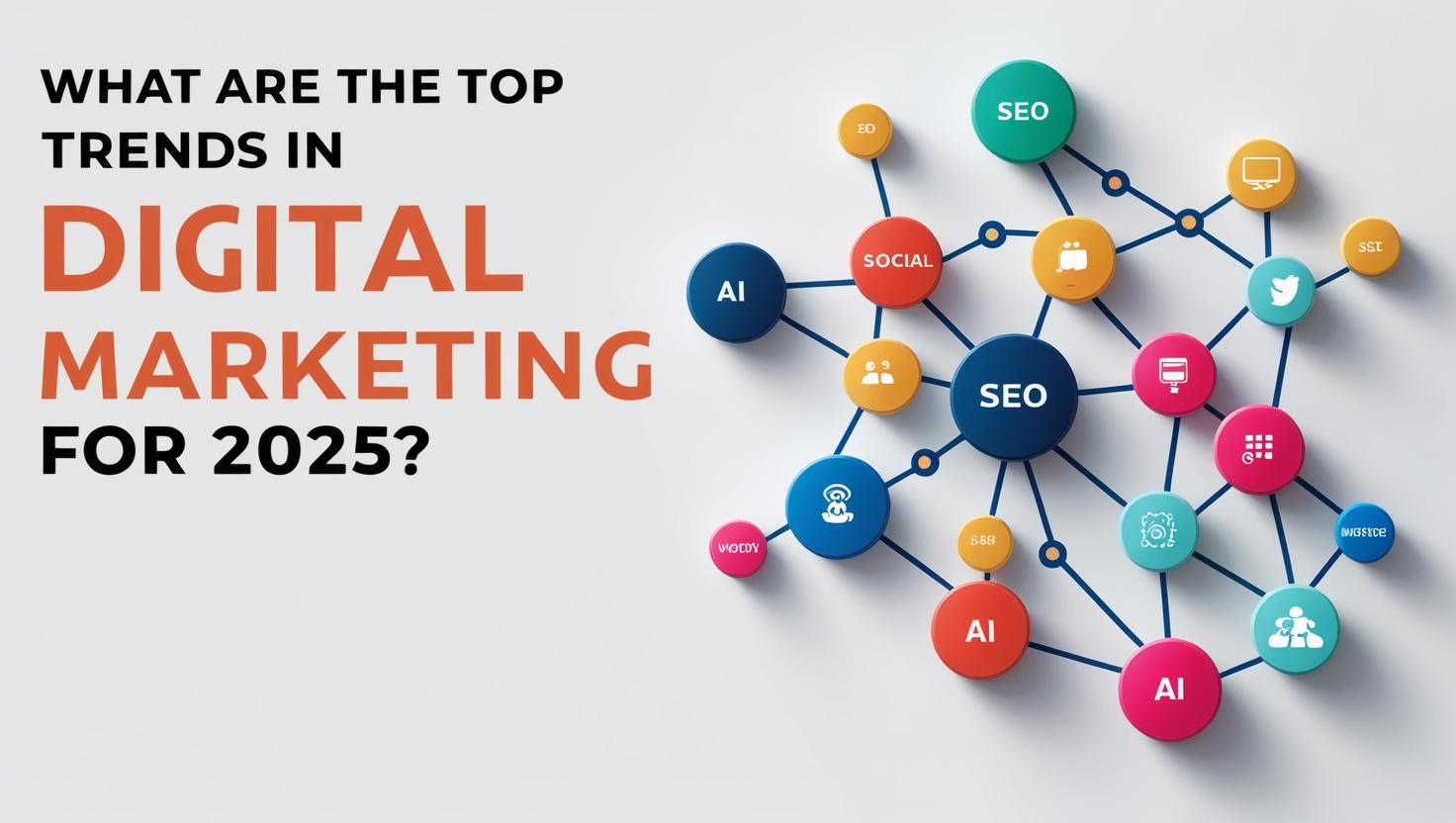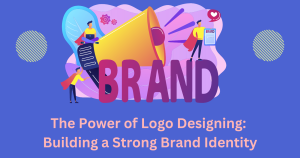As we have already entered 2025, we can witness new technology, shifting consumer habits, and a more complicated online environment contributing to the unparalleled rate of change in digital marketing. Marketers have to successfully reach their target consumers and maximize the effectiveness of their efforts.
In this blog, we will discuss the top digital marketing trends that are anticipated to rule the digital marketing landscape in 2025, and at the same time offer practical advice for companies hoping to prosper in an ever-changing landscape.
1. AI-powered marketing
Digital marketing is one of the fields where artificial intelligence (AI) has been making waves. AI is going to be widely incorporated into all marketing facets by 2025, from content production to tailored consumer interactions. Wondering how? Here you go:
a) AI-driven personalization
Marketers may now provide highly customized experiences that are completely based on data analysis and consumer behavior, all thanks to AI. Brands can design experiences that are unique for every user by using tools such as chatbots, predictive analytics, and dynamic content customization. This tendency will keep expanding, enabling companies to provide more relevant goods, services, and content to specific clients at the appropriate time and via the appropriate channel.
b) Automated content creation and curation
Generative AI tools, like OpenAI’s GPT series, will revolutionize content creation. In 2025, AI will not only help marketers create blog posts, social media updates, and email campaigns, but it will also be capable of curating and repurposing content at scale. This will help businesses save time and resources while maintaining a steady flow of engaging content.
c) Enhanced customer service with AI chatbots
AI chatbots and virtual assistants will continue to play a key role in customer service, providing real-time assistance, answering FAQs, and guiding customers through their journey. This year, these AI-driven solutions will become more sophisticated, offering deeper contextual understanding and even emotional intelligence to respond to customer needs more naturally.
2. Voice search and conversational AI
Voice search is already a part of our daily lives, but in 2025, it is set to become even more integrated into the digital marketing landscape. With smart speakers, voice-activated apps, and even voice-enabled devices like cars and TVs, voice search is projected to make up a significant portion of all online searches.
a) Optimizing for voice search
As consumers increasingly turn to voice assistants like Siri, Alexa, and Google Assistant, businesses will need to optimize their content for voice search. This means creating conversational, long-tail keywords and focusing on natural language that aligns with how people speak rather than how they type.
b) Conversational marketing
In 2025, conversational AI will further disrupt digital marketing by enabling two-way interactions that are more intuitive and personalized. Brands will leverage AI-powered messaging apps, chatbots, and even voice assistants to engage customers in real time, creating opportunities for lead generation, customer service, and seamless e-commerce experiences.
You May Also Like: How Can Social Media Boost Your Brand’s Growth and Engagement?
3. Video marketing and interactive content
Video marketing has seen explosive growth over the past decade, and it shows no signs of slowing down. By the end of 2025, it will be an even more powerful tool for capturing consumer attention, fostering engagement, and driving conversions.
a) Short-form video content dominates
Platforms like TikTok, Instagram Reels, and YouTube Shorts are already dominating the video content scene with their short-form video formats. In 2025, these platforms will continue to be at the forefront of digital marketing, with brands utilizing quick and snackable video content to capture the fleeting attention spans of modern consumers.
b) Live streaming and real-time engagement
Live streaming will become an increasingly important part of the marketing toolkit, allowing brands to engage with their audience in real time. From product launches to Q&A sessions and behind-the-scenes looks, live streaming creates authentic and spontaneous interactions that help build stronger relationships with customers.
c) Interactive video experiences
As video technology advances, interactive video will become more prevalent. Brands will use tools like shoppable videos, polls, and interactive ads to create engaging, participatory experiences for their audiences. These formats allow consumers to interact directly with the content, making them more likely to convert.
4. Augmented Reality (AR) and Virtual Reality (VR)
The use of AR and VR in digital marketing is set to increase exponentially in 2025. These immersive technologies offer brands the ability to create engaging, memorable experiences for consumers that go beyond traditional media.
a) AR in e-commerce
Augmented reality will enable customers to ‘try before they buy’ like never before. Brands in fashion, beauty, furniture, and other industries are already adopting AR tools that allow customers to visualize products in their homes or on their bodies. This trend will become more widespread in 2025 as the technology becomes more accessible and affordable.
b) VR for brand experiences
Virtual reality will allow consumers to step into entirely new worlds, and marketers will use this to create branded experiences that are both entertaining and informative. From virtual store tours to immersive product demonstrations, VR will be used to create a deep connection between the brand and the consumer, fostering engagement and loyalty.
5. Privacy and data protection: a growing focus
As concerns about privacy and data security continue to rise, consumers are becoming more cautious about how their personal data is collected and used. This shift in mindset will influence digital marketing strategies in 2025.
a) First-party data collection
With increasing restrictions on third-party cookies and tracking, brands will rely more heavily on first-party data – information gathered directly from customers through interactions on websites, apps, and other owned platforms. Marketers will need to focus on building trust with consumers to encourage data sharing transparently and ethically.
b) Privacy-centric marketing strategies
In response to changing data protection regulations like GDPR and CCPA, digital marketers will need to adopt privacy-centric strategies. This means being more transparent about data collection practices, offering opt-in consent, and ensuring that all data is securely stored and used for its intended purpose.
c) Zero-party data
Zero-party data refers to the information that consumers willingly and proactively share with brands, such as preferences, purchase intentions, and feedback. This type of data is becoming increasingly important for marketers who want to create hyper-personalized experiences without breaching privacy concerns.
You May Also: What is the Future of Graphic Designing in the Growing Era of AI?
6. Sustainability and ethical marketing
Consumers in 2025 are expected to be more conscious of the environmental and social impact of the brands they support. As a result, sustainable and ethical marketing practices will be in the spotlight.
a) Sustainability as a brand value
In 2025, sustainability will be an essential factor in consumer decision-making. Brands that prioritize eco-friendly products, reduce waste, and promote sustainable business practices will gain a competitive edge. Marketers will need to effectively communicate these efforts to their audience through content that highlights the brand’s commitment to the planet.
b) Social responsibility and inclusivity
Consumers are looking for brands that align with their values, which means social responsibility and inclusivity will be more important than ever. Brands that take strong stances on issues like racial equality, gender inclusivity, and community support will resonate more with consumers who prioritize corporate social responsibility.
7. The continued evolution of social media marketing
Social media remains one of the most powerful tools in digital marketing. However, with new platforms and features emerging constantly, the way brands approach social media marketing will continue to evolve.
a) Niche social media platforms
In 2025, niche social media platforms will become more important as consumers look for specialized content and communities. Brands will need to tailor their strategies to specific platforms where their target audience is most active, rather than relying solely on mainstream platforms like Facebook and Instagram.
b) Influencer marketing 2.0
Influencer marketing will continue to be a key tactic for brands in 2025. However, the focus will shift towards micro and nano influencers who have smaller, more engaged audiences. These influencers will offer a higher level of authenticity and trust, which resonates more with today’s skeptical consumers.
c) Social commerce
Social commerce, the ability to shop directly within social media platforms, will become a dominant trend in 2025. Platforms like Instagram, Facebook, and TikTok are already rolling out e-commerce features, and by 2025, this trend will likely be a standard part of social media marketing strategies.
Bottom line!
As we look ahead, it is clear that technology, data, consumer behavior, and social trends will shape the digital marketing landscape. Marketers who embrace innovation, prioritize personalization, and stay attuned to consumers’ shifting expectations will be best positioned for success.
AI, immersive experiences, sustainability, and a deeper understanding of consumer privacy and ethics will drive the future of digital marketing. By staying ahead of these trends, brands can build stronger, more meaningful relationships with their customers while driving measurable business results.





